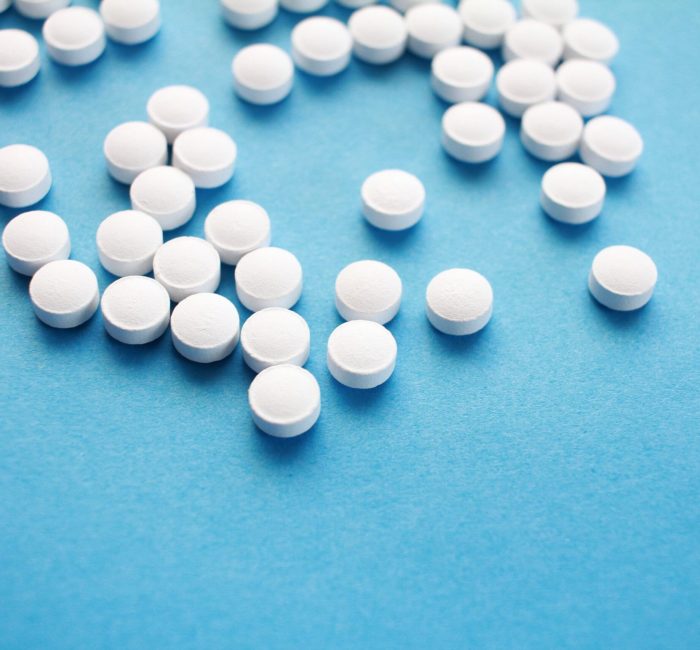Vyvanse Withdrawal & Detox Timeline
Vyvanse is a prescription medication that is commonly used to treat attention deficit hyperactivity disorder (ADHD) and binge eating disorder. It is a central nervous system (CNS) stimulant that increases dopamine and norepinephrine levels in the brain, similar to Adderall and Ritalin. While Vyvanse can be an effective treatment option for those who have ADHD, it can also be habit-forming and lead to Vyvanse withdrawal symptoms when it is discontinued.
What is Vyvanse Withdrawal?
Someone can become addicted to Vyvanse when they take the medication in a way that is different from how it was prescribed. This can include taking higher doses than prescribed, taking the medication more frequently than prescribed, or taking the medication without a prescription.
Because Vyvanse increases the levels of dopamine and norepinephrine in the brain, it produces feelings of pleasure and reward. Over time, the brain can become accustomed to these heightened levels of neurotransmitters, and the individual may begin to crave the drug and feel that they need it in order to function normally.
As the individual continues to take Vyvanse, they may develop a tolerance to the medication, which means that they need higher doses of the drug in order to achieve the same effects. This can lead to a cycle of increasing drug use and tolerance, which can ultimately result in addiction.
Vyvanse withdrawal occurs when someone who has been taking the medication regularly stops taking it abruptly. This can happen if the person runs out of their prescription, if they decide to stop taking the medication on their own, or if they are trying to quit Vyvanse abuse.

Request A Confidential Callback

Why Is Vyvanse Abused?
Vyvanse is often abused for its stimulant effects on the central nervous system which can increase focus, energy, and productivity. The active ingredient in Vyvanse, dextroamphetamine, acts on the dopamine and norepinephrine neurotransmitters in the brain, which are responsible for regulating attention, motivation, and mood.
Some people abuse Vyvanse to help them study for exams or to stay awake during long shifts at work. The medication can improve cognitive function and enhance productivity, making it attractive to students, professionals, and others who need to stay focused for long periods of time.
Additionally, Vyvanse can also produce a euphoric high, which is why some individuals abuse the drug to get high. When taken in high doses, Vyvanse can cause a surge of dopamine in the brain, which can produce feelings of pleasure and reward.
Other reasons why people may abuse Vyvanse include self-medication for conditions like depression, anxiety, or ADHD, or as a weight-loss aid. However, Vyvanse abuse can lead to addiction, tolerance, and withdrawal symptoms when the medication is stopped. It is important to only take Vyvanse as prescribed by a medical professional and to seek help if you are struggling with addiction.
Signs and Symptoms of Vyvanse Withdrawal
The signs and symptoms of Vyvanse withdrawal can vary depending on the individual and the severity of their addiction. Some of the most common symptoms of Vyvanse withdrawal include:
1. Fatigue
2. Depression
3. Irritability
4. Anxiety
5. Difficulty Sleeping
6. Increased appetite
7. Headaches
8. Dizziness
9. Nausea and vomiting
In some cases, Vyvanse withdrawal can also lead to more severe symptoms, such as psychosis or seizures. It is important to seek medical attention if you are experiencing severe Vyvanse withdrawal symptoms.


How Soon Can I Get Into Detox?

Vyvanse Withdrawal Timeline
Vyvanse withdrawal can vary depending on the individual and the severity of the addiction. In general, the acute withdrawal phase typically lasts for 1-2 weeks after the last dose of Vyvanse. During this time, the individual may experience physical and psychological symptoms of withdrawal, such as fatigue, depression, and anxiety.
After the initial withdrawal phase, some individuals may continue to experience protracted withdrawal symptoms for several weeks or months. These symptoms can include difficulty sleeping, fatigue, and irritability. However, with proper medical care and support during drug detox in Atlanta, many individuals are able to successfully manage their Vyvanse withdrawal symptoms and begin their recovery journey.
How Long Does Vyvanse Stay in Your System?
The length of time that Vyvanse stays in your system can vary depending on several factors, such as your age, weight, and metabolism. In general, Vyvanse can be detected in urine for up to 2-3 days after the last dose, in blood for up to 12-24 hours after the last dose, and in hair for up to 90 days after the last dose.
However, it is important to note that these are just general guidelines, and individual results may vary based on several factors such as the frequency and dosage of Vyvanse use, and the individual’s overall health and metabolism.
Additionally, it is important to consider that the effects of Vyvanse may last longer than the time it takes for the drug to be eliminated from the body. For example, the medication may continue to affect the individual’s cognitive function, mood, and behavior even after it is no longer detectable in their system.
What to Expect At Our Detox in Atlanta
If you are struggling with Vyvanse addiction and are looking for help, a Vyvanse detox center may be a good option for you. Detox ATL offers multiple options with our detox partners, and in general, here is what you can expect:
Medical Assessment: Upon arrival at the detox center, you will undergo a comprehensive medical assessment to determine the severity of your addiction and any underlying medical conditions that may impact your treatment plan.
Withdrawal Management: The primary goal of a Vyvanse detox center is to help you safely and comfortably manage your withdrawal symptoms. You will receive 24-hour medical supervision, and the staff will use a combination of medication-assisted treatment and behavioral therapies to help you manage your symptoms.
Individualized Treatment Plan: The staff at the detox center will work with you to develop an individualized treatment plan that is tailored to your specific needs and goals. This may include medication-assisted treatment, behavioral therapies, and support groups.
Support and Encouragement: The staff at the detox center will provide you with ongoing support and encouragement throughout your recovery journey. They will work with you to develop coping skills and strategies to help you manage your cravings and maintain your sobriety.
Aftercare Planning: Once you have completed your detox program, the staff at the center will work with you to develop an aftercare plan that includes ongoing support and treatment. This may include referrals to outpatient treatment programs, support groups, Intensive Outpatient Programs, and other resources to help you maintain your sobriety.

Find Drug Detox in Atlanta Today!
